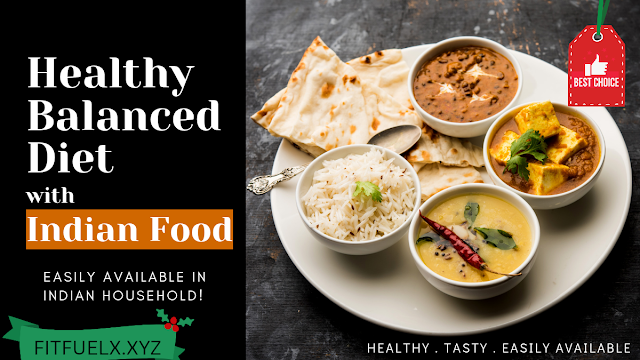What Is a Balanced Diet?
In today’s fast-paced world, people often ask, What is a balanced diet? It's a simple yet critical question, especially when maintaining good health has become a top priority. Let’s explore the concept in detail.
Definition of a Balanced Diet
A balanced diet is a meal plan that includes all the essential nutrients in proper proportions to support the body’s functions and promote overall health. It emphasizes nutritional diversity and ensures that you consume macronutrients and micronutrients in the right quantities.
Key Components of a Balanced Diet
A balanced diet typically includes carbohydrates, proteins, fats, vitamins, minerals, and water. Each plays a unique role in keeping the body healthy and functional.
Importance of Nutritional Diversity
Diversity is the key. A variety of foods ensures you’re getting all the nutrients your body needs to thrive.
The Role of Macronutrients
Carbohydrates: The Primary Energy Source
Carbohydrates fuel your body with energy, making them a cornerstone of What is a balanced diet? Sources include whole grains, fruits, and vegetables.
Proteins: Building Blocks of Life
Proteins repair tissues and build muscles. Lean meat, fish, eggs, legumes, and nuts are excellent sources.
Fats: The Essential Energy Reserve
Healthy fats support brain health and hormone production. Avocados, nuts, seeds, and fatty fish provide these essential fats.
The Role of Micronutrients
Vitamins: Boosting Immunity and Growth
Vitamins like A, C, and D enhance immunity and support growth. Include colorful fruits and vegetables in your diet for a vitamin boost.
Minerals: Supporting Vital Body Functions
Minerals such as calcium and iron are indispensable for bone health and oxygen transport. Dairy, leafy greens, and beans are excellent sources.
Water: The Most Essential Nutrient
Never overlook hydration! Water aids digestion, regulates temperature, and helps detoxify the body.
Food Groups in a Balanced Diet
Fruits and Vegetables
Packed with vitamins, minerals, and fiber, fruits and vegetables are the foundation of What is a balanced diet?
Whole Grains
Brown rice, oats, and quinoa provide energy and keep your digestive system healthy.
Proteins (Plant and Animal Sources)
From chicken to chickpeas, proteins are a must.
Dairy and Alternatives
Milk, yogurt, and plant-based alternatives provide calcium and other nutrients.
Healthy Fats
Olive oil, flaxseeds, and fish are your go-to sources.
Benefits of a Balanced Diet
Physical Health Benefits
A balanced diet strengthens immunity, boosts energy, and promotes healthy skin and hair.
Mental Health and Cognitive Benefits
Proper nutrition improves focus, reduces stress, and elevates mood.
Long-term Disease Prevention
Eating a balanced diet reduces the risk of chronic diseases like diabetes, heart disease, and cancer.
Practical Tips for Maintaining a Balanced Diet
Portion Control and Moderation
Enjoy your meals, but keep portion sizes in check.
Meal Planning and Preparation
Planning ensures balanced meals without last-minute unhealthy choices.
Mindful Eating
Focus on your food and savor every bite.
Challenges in Achieving a Balanced Diet
Busy Lifestyles and Convenience Foods
Fast food might be tempting, but it lacks essential nutrients.
Budget Constraints
Healthy eating doesn’t have to be expensive. Seasonal produce and bulk buying can help.
Misleading Nutrition Information
Stay informed and verify claims before making dietary changes.
Balanced Diets for Special Needs
For Children
Growing bodies need extra nutrients for development.
For Seniors
Older adults require more calcium and less sodium.
For Athletes
Athletes need higher protein and calorie intake.
For Pregnant Women
Nutrients like folic acid and iron are essential for pregnancy.
Conclusion
Understanding What is a balanced diet? is the first step towards a healthier lifestyle. By incorporating diverse food groups and staying mindful of your eating habits, you can ensure optimal physical and mental well-being.
FAQs
What foods should I avoid to maintain a balanced diet?
Avoid excessive sugar, salt, and processed foods for a healthier diet.How can I ensure I get all essential nutrients?
Eat a variety of foods from all food groups to cover your nutritional bases.Is it okay to occasionally indulge in unhealthy foods?
Yes, moderation is key. Treat yourself occasionally without guilt.How does a balanced diet affect mental health?
A balanced diet improves mood, reduces stress, and enhances cognitive function.What are common myths about a balanced diet?
One myth is that fats are entirely bad, but healthy fats are essential for a balanced diet.
Please don’t forget to leave a review.
Explore more by joining me on YOUR FITFULEX

.jpeg)

.jpeg)